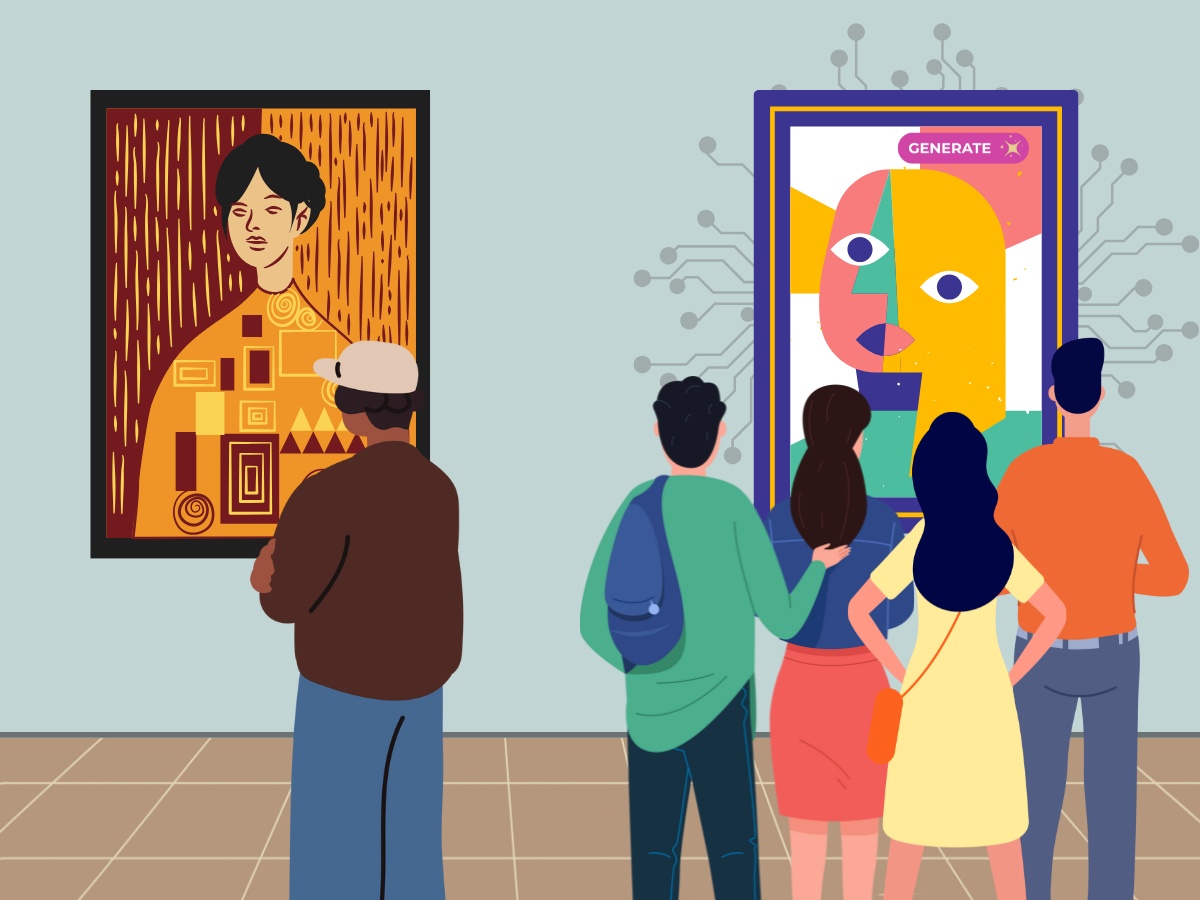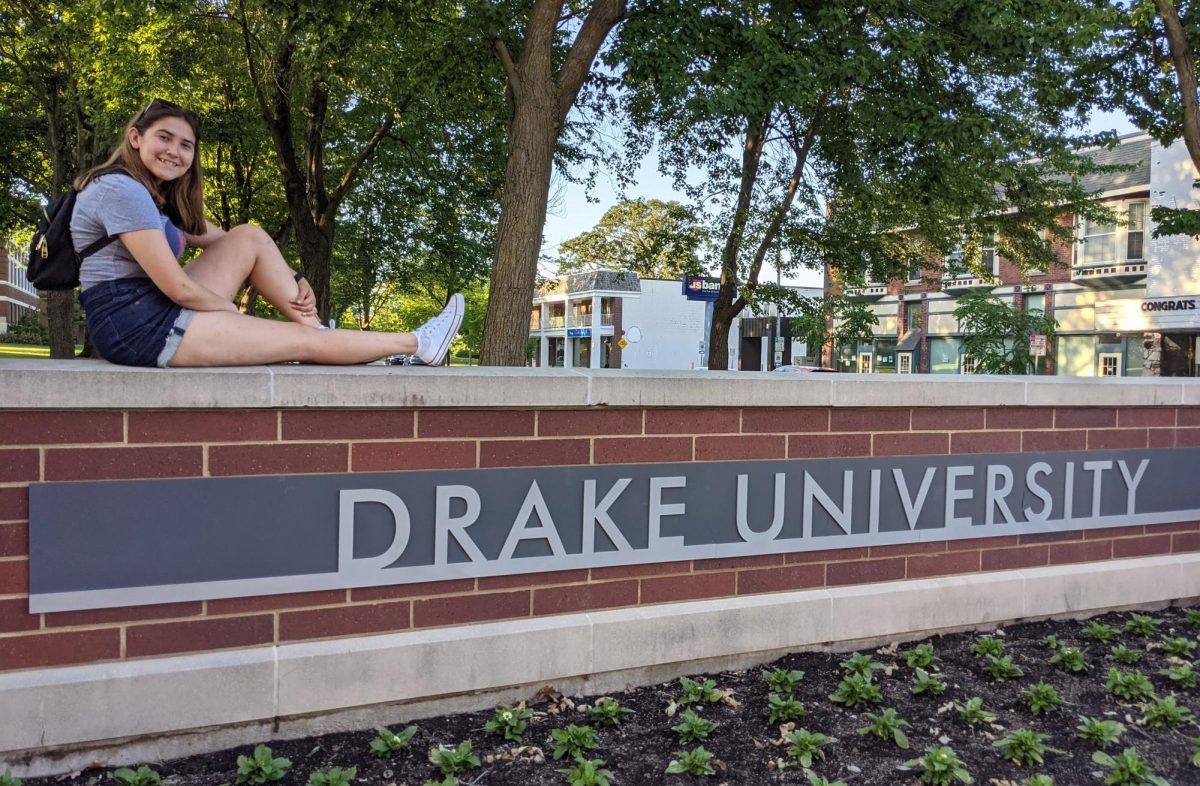As an incoming freshman, it did not take me long to recognize Drake University’s dedication to supporting and fostering diversity, equity and inclusion on its campus. While I feel very fortunate to be a part of a college that puts such an emphasis on these extremely important values, I also feel that many college students (both on our campus and in our generation as a whole) mistake the true meaning of what being “inclusive” is— especially when it comes to diversity of opinion.
It’s easy for most people to understand what being inclusive means when it comes to the diversity of more “tangible” things; for example, we all agree that no one deserves to be discriminated against or disrespected on account of their race, ethnicity, religion, sexual orientation, gender, etc. If you heard that a fellow Drake student had been denied an opportunity simply because they were of a marginalized identity, you would recognize that situation as wrong and you’d likely do what you could to hold the university accountable.
However, do people recognize the same kind of discrimination when someone is being denied an opportunity to have/express their own opinion? I was once talking to someone in a different FYS than mine, and they made a comment to the effect of, “Well I could’ve never told my class what I actually believed, or I’d have gotten attacked.” Is that what inclusivity truly is? Fighting to make sure everyone adheres to the same set of “correct” opinions?
Now don’t misunderstand me—if someone expresses a blatantly hateful opinion, they should be called out on it. However, we all know that many of today’s hot-topic issues involve a wide spectrum of gray area. Difficult topics like abortion, gun control or immigration involve multiple perspectives that paint different people in different ways, and while there is certainly a “truth” out there, it can’t really be objectively determined as right or wrong, kind or hateful. Therefore, everyone is entitled to an opinion on what that truth is.
If someone’s opinions fall on the opposite side of the spectrum from your own, no matter how preposterous you find them to be, you do not have the right to disrespect or mistreat that person. Even if you deeply believe that your opinion is the correct one and theirs is an abhorrent one, everyone should be allowed to reason and speak the way they feel is right. Recognizing and respecting that puts you one step closer to being a truly inclusive person.
Now on the opposite end of the spectrum, some people feel that, to be inclusive, you must accept and support every ideology that people present. In reality, you are entitled to believe that other people are wrong. After all, by definition, being “inclusive” to other people’s opinions requires that there is, in fact, a difference in opinion to be had. If you simply accept every idea that others present to you as true, it does not make you inclusive—it makes you a relativist. (Which, funny enough, is an ideology you can choose to adopt if you feel it’s right.)
As I mentioned before— there is a “truth” out there. What do you think it is? Why do you think you are correct? Being inclusive does not mean you have to support everyone else’s idea of truth or believe their opinions to be true yourself; inclusivity only means you must always respect other people regardless of your beliefs and you must protect others’ rights to equal opportunity despite their difference in ideology. If a person lives their life in a completely opposite way than you do, you don’t have to agree with or even support that way of life to be an inclusive person— you just have to respect that person’s right to live that way.
So the million dollar question is, how can you stand up for what you believe to be right, yet always give others the respect to stand up for what they believe is right? How can you make sure others have equal opportunity to live their truth, yet uphold your right to stay true to the beliefs you personally feel are correct? In other word, what is the right way to practice inclusivity?
It would be contrary to the point of my entire article if I told you there is an objectively right answer to be had. However, I hope this article gives you some important reminders for the next time you feel the urge to “attack” a classmate for their opinion in class. A reminder that everyone’s lived experience gives them a unique, yet limited, point of view and no one deserves to be ridiculed for what’s out of their control. A reminder that it isn’t bigotry to talk with someone and say, “I hear what you’re saying, but I still believe my opinion is the truth,” so long as you don’t stand idly by if that person is the target of discrimination. At the end of the day, the only thing you owe everyone else is respect.
We are all just looking for the truth… and since no one can know what the truth objectively is during this lifetime, we might as well respect all the other people who are trying their best to figure it out.







